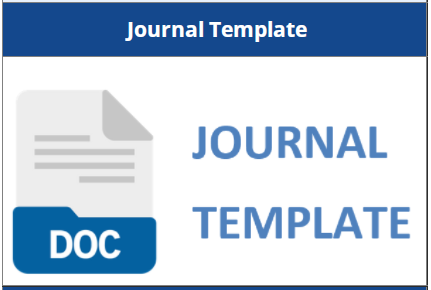ENTREPRENEURIAL INTENTION ON SELF-EFFICACY AND BUSINESS INDEPENDENCE OF HINDU GENERATION TOWARDS GOLDEN INDONESIA
Abstract
Penelitian ini bertujuan untuk mengkaji generasi muda Hindu di Kota Mataram dalam mendukung program Pemerintah menuju Indonesia emas pada tahun 2045. Lokasi penelitian difokuskan di Kota Mataram, dimana Kota Mataram merupakan ibu Kota Provinsi Nusa Tenggara Barat,Indonesia dimana Lembaga Pendidikan Sebagian besar berada di Kota Mataram, serta penduduk yang beragama Hindu terbesar berada di Kota Mataram. Karakteristik kota Mataram yang majemuk dapat mendukung dari penelitian yang dilakukan. Fokus penelitian ini mengangkat efikasi diri dan kompetensi dari generasi muda Hindu di Kota Mataram dalam menjalankan dan membentuk usaha. Efikasi diri membentuk niat generasi muda Hindu sehingga akan menumbuhkan jiwa kewirausahaan, selain itu kompetensi kewirausahaan sangat mendukung didalam menjalankan usaha tersebut. Peran Pendidikan berpengaruh bagi generasi muda Hindu dimana Pendidikan membantu memberikan wawasan, gambaran hingga pelatihan yang berguna sebelum generasi muda Hindu menjalankan usahanya secara mandiri, selain itu factor lingkungan berperan penting seperti lingkungan keluarga dan sekitar dari generasi muda Hindu dapat mempengaruhi karakter dari generasi muda Hindu apakah akan berani mengambil Keputusan untuk menjadi wirausaha atau tidak. Pengembangan penelitian sejenis perlu dilakukan, saran yang dapat diberikan untuk penelitian selanjutnya yakni perlunya menambah variabel proses pembentukan karakter dalam Pendidikan berwirausaha sehingga dapat mengembangkan penelitian ini.
References
Ajzen, I. (1991). The theory of planned behavior. Organizational Behavior and Human Decision Processes,50 (2), 179-211. https://doi.org/10.1016/0749-5978(91)90020-
T Bandura, A. (1995). Exercise of personal and collective efficacy in changing societies. A. Bandura, ed. Self-Efficacy in Changing Societies. New York: Cambridge University.
Bandura, A. (2012). On the functional properties of perceived self-efficacy revisited. Journal of Management, 38(1), 9–44.
Bird, B. (1995). Toward a theory of entrepreneurial competency advances in entrepreneurship firm emergence and growth.(ebook).
Bocconcelli, R., Cioppi, M., Fortezza, F., Francioni, B., Pagano, A., Savelli, E., & Splendiani, S. (2018). SMEs and marketing: A systematic literature review. International Journal of Management Reviews, 20(2), 227–254.
Boyd, N. G., & Vozikis, G. S. (1994). The influence of self-efficacy on the development of entrepreneurial intentions and actions. Entrepreneurship Theory and Practice, 18(4), 63–77.
Chen, C. C., Greene, P. G., & Crick, A. (1998). Does entrepreneurial self-efficacy distinguish entrepreneurs from managers? Journal of Business Venturing, 13(4), 295–316.
Erikson, T. (2002). Entrepreneurial capital: The emerging venture's most important asset and competitive advantage. Journal of Business Venturing, 17(3), 275–290.
Ever Grande Research Institute. (2020). China Youth Entrepreneurship Development Report. 11-18. http://www.199it.com/archives/1155898. html.
Fayolle, A., Gailly, B., & Lassas-Clerc, N. (2006). Assessing the impact of entrepreneurship education programs: A new methodology. Journal of European Industrial Training,30 (9), 701-720. https://doi.org/10.1108/03090590610715022
Frank, A. I. (2007). Entrepreneurship and enterprise skills: A missing element of planning education? Planning, Practice & Research, 22(4), 635–648.
Hoogendoorn, B., Pennings, E., & Thurik, R. (2010). What do we know about social entrepreneurship: An analysis of empirical research.
Hsu, D. K., Burmeister-Lamp, K., Simmons, S. A., Foo, M.-D., Hong, M. C., & Pipes, J. D. (2019). "I know I can, but I don't fit": Perceived fit, self-efficacy, and entrepreneurial intention. Journal of Business Venturing, 34(2), 311–326.
Karimi, S., J.A. Biemans, M., Lans, T., Chizari, M., & Mulder, M. (2014). Effects of role models and gender on students' entrepreneurial intentions. European Journal of Training and Development,38 (8), 694-727. https://doi.org/10.1108/EJTD-03-2013 0036
Kautonen, T., Gelderen, M. van, & Fink, M. (2015). Robustness of the Theory of Planned Behavior in Predicting Entrepreneurial Intentions and Actions. Entrepreneurship Theory and Practice. https://doi.org/10.1111/etap.12056
Kessler, A., & Frank, H. (2009). Nascent Entrepreneurship in a Longitudinal Perspective. International Small Business Journal. https://doi.org/10.1177/0266242609344363
Komarkova, I., Gagliardi, D., Conrads, J., & Collado, A. (2015). Entrepreneurship competence: An overview of existing concepts, policies and initiatives-Final Report. JRC Research Reports, JRC96531.
Krueger, N. (2009). Entrepreneurial intentions are dead: Long live entrepreneurial intentions. Understanding the Entrepreneurial Mind, P51-72. New York: Springer.
Kuratko, D. F. (2005). The Emergence of Entrepreneurship Education: Development, Trends, and Challenges. Sage Journals,29 (5). https://doi.org/doi.org/10.1111/j.1540 6520.2005.00099
Lans, T., Biemans, H., Mulder, M., & Verstegen, J. (2010). Self-awareness of mastery and improvability of entrepreneurial competence in small businesses in the agrifood sector. Human Resource Development Quarterly, 21(2), 147–168.
Lihua, D. (2022). An Extended Model of the Theory of Planned Behavior: An Empirical Study of Entrepreneurial Intention and Entrepreneurial Behavior in College Students. Frontiers in Psychology,12 https://www.frontiersin.org/articles/10.3389/fpsyg.2021.627818 .
Lim, D. S., Morse, E. A., Mitchell, R. K., & Seawright, K. K. (2010). Institutional environment and entrepreneurial cognitions: A comparative business systems perspective. Entrepreneurship Theory and Practice, 34(3), 491–516.
Liñán, F., Moriano, J. A., & Jaén, I. (2016). Individualism and entrepreneurship: Does the pattern depend on the social context? International Small Business Journal. https://doi.org/10.1177/0266242615584646
Malebana, M. J., & Swanepoel, E. (2014). The relationship between exposure to entrepreneurship education and entrepreneurial self-effi cacy. Southern African Business Review,18 (1), Article 1.
Man, T. W., Lau, T., & Chan, K. (2002). The competitiveness of small and medium enterprises: A conceptualization with focus on entrepreneurial competencies. Journal of Business Venturing, 17(2), 123–142.
Mitchelmore, S., & Rowley, J. (2010). Entrepreneurial competencies: A literature review and development agenda. International Journal of Entrepreneurial Behavior & Research, 16(2), 92–111.
Nowiński, W., Haddoud, M. Y., Lančarič, D., Egerová, D., & Czeglédi, C. (2019). The impact of entrepreneurship education, entrepreneurial self-efficacy and gender on entrepreneurial intentions of university students in the Visegrad countries. Studies in Higher Education. https://doi.org/doi.org/10.1080/03075079.2017.1365359
Reditiasari, N., Wijaya, I. G. B., Aryawati, N. P. A., Sukendri, N., & Suardana, I. K. P. (2023). Tri Hita Karana Sebagai Etika Bisnis Dalam Meningkatkan Perekonomian. Guna Sewaka, 2(1), 11-24.
Surya Pradnya, I. M. A. (2022). HINDU ENTREPRENEURSHIP Vedic-based Entrepreneurship (Vol. 1). Expression Library. Vanevenhoven, J. (2013). Advances and challenges in entrepreneurship education. Journal of Small Business Management, 51(3), 466–470.
Wijaya, I. G. B. (2021). Pengaruh Pendidikan Kewirausahaan Dan Motivasi Terhadap Minat Berwirausaha Mahasiswa. Jambura Economic Education Journal, 3(2), 52-60.
Wijaya, I. G. B. (2022). Etika Kewirausahaan Berdasarkan Ajaran Weda. Guna Sewaka, 1(1), 44-51.

This work is licensed under a Creative Commons Attribution-ShareAlike 4.0 International License.











